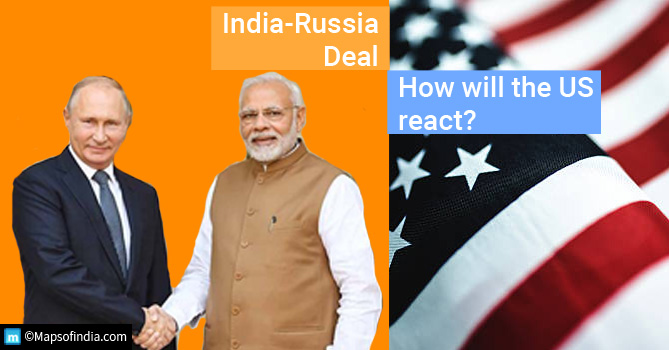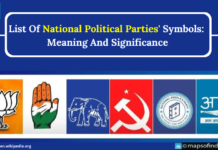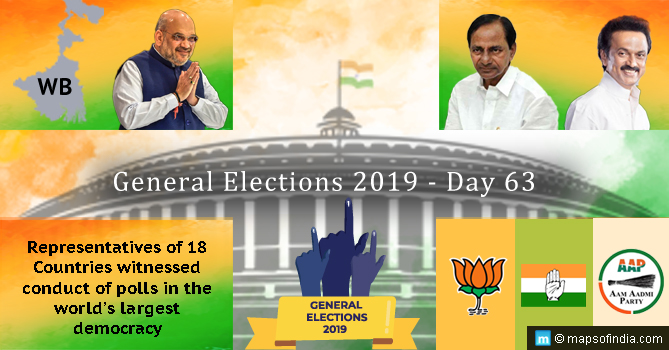
International relations have never really been a business of 2+2=4. Countries often mingle in more ways than one, and simultaneous relations make it a very slippery road to walk. The recent Indo-Russian deal is yet another feather in the cap.
On October 5th 2018, the Indian Prime Minster, Narendra Modi, and the Russian president, Vladimir Putin met as part of the 19th annual India-Russia summit. Putin’s arrival in India had already been a subject of mass public interest ever since it was first speculated about. And, why not? With the summit showing clear promises of landmark ties between the two nations, it had to be the center of attraction. However, as the meeting turned out to be fruitful, as expected; one question resonated- How will the US react?
All you need to know about the deal
Putin’s two-day visit to India was a part of the 19th annual summit between the two countries. Sources had hinted in advance that the meeting will deliberate upon key military and security deals etc. On 5th October, the nations signed off a deal in the capital, essentially with Russia agreeing to transfer 5 S-400 missile systems to India. In addition, our country will also purchase four combat ships, and negotiate for license-manufacture of AK 103 rifles. While the S-400s are expected to cost India $5.43 billion, the frigates will cost $2.2 billion.
Here are the key highlights from the deal:
- Both the countries have agreed to come together against terrorism and drug-trafficking.
- India has invited Russia to construct a defense industrial park in the country.
- Putin, in his address, mentioned that Russia will be building a new nuclear plant, in collaboration with India.
- An MoU has been signed between Federal Space Agency of Russia and Indian Space Research Organisation (ISRO) for joint activities in India’s ambitious crewed space mission, Gaganyaan. The MoU also includes Russia training Indian astronauts.
- The two countries have also made a pact declaring Russia’s aid in helping India build six nuclear power projects.
Why might the US be unpleased?
The US-Russia diplomatic relations, especially since the 2014 Ukraine crisis, have been particularly strained. In 2017, the United States Congress introduced Countering America’s Adversaries Through Sanctions Act (CAATSA). The act, in limelight for obvious reasons, imposed sanctions on three countries, namely- Russia, Iran and North Korea.
Under the provisions of CAATSA is an Act called- Countering Russian Influence in Europe and Eurasia Act, 2017. The Act mentions sanctions for “transactions with Russian defense or intelligence sectors”. In September 2018, the United States had put China through sanctions for buying missiles and fighter jets from Russia, S-400s being one of them. Naturally, this ought to put India under strong probabilities of being sanctioned under CAATSA.
India being one of the United States’ allies and partners, its deal with Russia naturally acts as a sour spot for the western nation.
A broader picture
When asked about the India-Russia deal, the US embassy in New Delhi stated that the motive behind sanctions on Russia was to keep its “malign behaviour” in check, not to “impose damage to the military capabilities” of US’s allies. The fairly safer statement made by the US has made one thing clear: it does not plan on putting India through as strict a process as China, at least not outrightly.
The reason for US possibly going soft on India is simple: while it is strongly averse to the developing ties between Russia and China, it also knows that India is one of the best ways to attack that very problem. Russia and China are similar in their ideologies, and have also improved their trade relations significantly in the recent years. India forming new relations with Russia could act as the perfect “mid-wall” the United States would like to have between the two countries.
Secondly, this is not the first arms deal the two countries have made. Russia is one of India’s largest source of imported military weapons since a long time. India has already stated that it hopes the United States will not make it undergo sanctions as a consequence of this recent summit. Whether or not the hopes bear any fruits, is something to be seen in the days to follow.
One thing is certain, however. India still remains one of the US’s crucial allies and partners. In a situation like this, the latter wouldn’t want to risk jeopardising the close bond.




